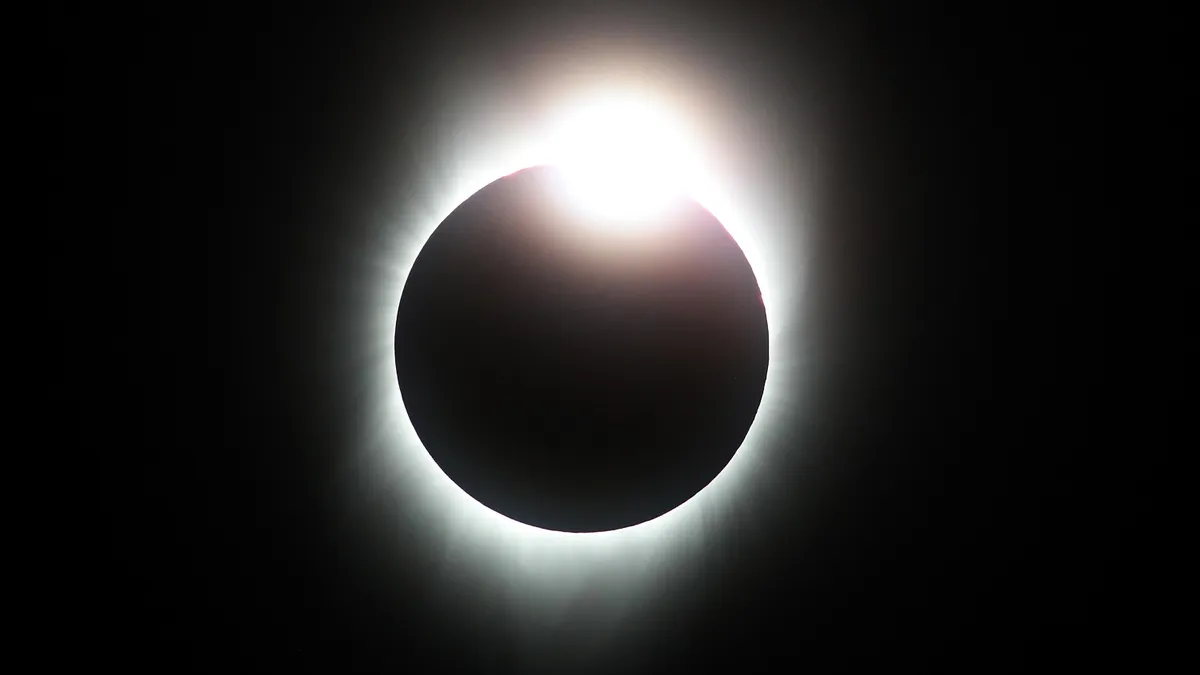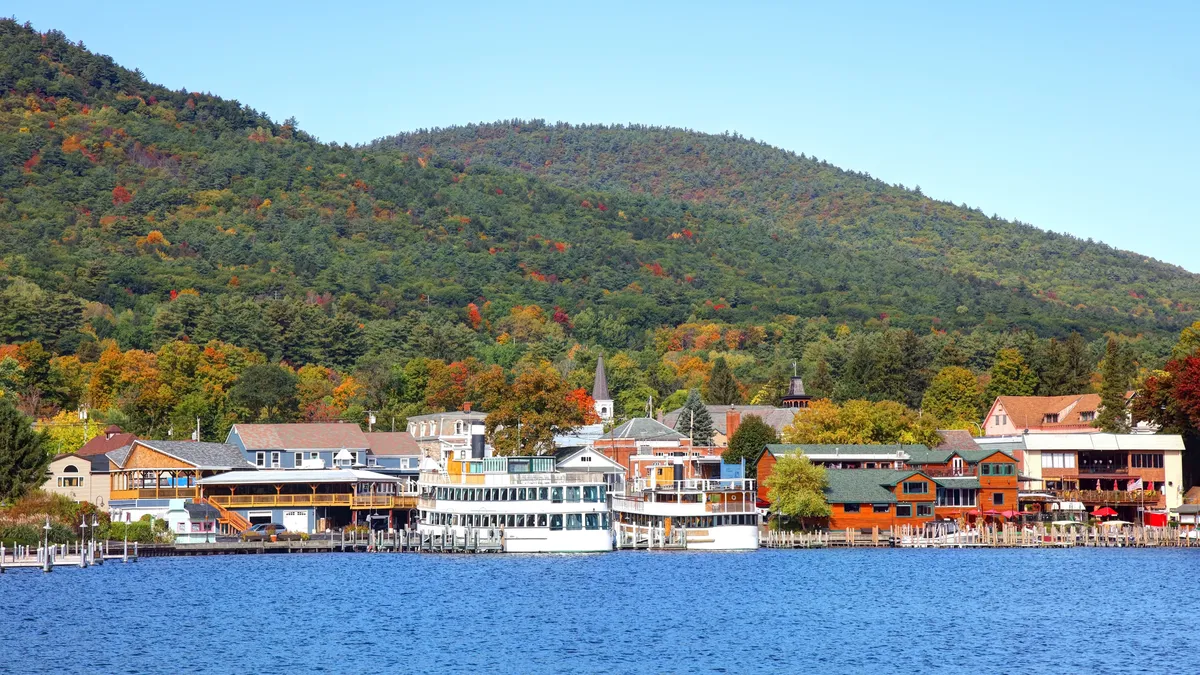With less than a month until the 2024 total solar eclipse passes over several top U.S. cities, hotels across the country are experiencing a surge in bookings.
The total solar eclipse — when the moon passes between the sun and earth, temporarily blocking out the sun’s light — is set to pass over North and Central America on April 8. Several U.S. cities like Dallas and Indianapolis, situated along the eclipse’s narrow track from Texas to Maine, are expected to be prime viewing locations.
The last total solar eclipse in August 2017 garnered significant spectatorship. But with this year’s eclipse having nearly double the total duration of the last, more people are expected to watch — and travel to do so, STR forecasted last month.
That’s good news for hotels, many of which have already seen bookings skyrocket as travelers prepare for the solar sight.
Stellar hotel activity
Travel demand for the days surrounding the total solar eclipse is heightened, according to corporate travel and expense management company Navan.
The company found that aggregate searches for solar eclipse travel have increased three times, with hotels up 306%, flight searches up 107% and car rental searches up 241% compared to an equivalent search window and travel days during the week prior to the eclipse.
According to the State of the American Traveler's March report, more than 20% of American travelers say they are likely to take a trip to experience next month's total eclipse.
Consumers aren’t just searching for hotels — they’re booking them. Aggregate bookings for hotels during the solar eclipse also increased by 315%, Navan found.
That number is even higher for Choice Hotels International, which has more than 400 hotels in the path of this year’s total solar eclipse that are being booked at an increased rate of 800% compared to the same date last year, the hotel company shared.
Some markets are seeing more bookings than others. According to Navan, the top five most-booked destinations in the eclipse’s path are Austin, Texas; Dallas; Columbus, Ohio; Indianapolis; and Montreal, Quebec in Canada.
As of early February, Dallas and Austin showed the highest occupancy on the books for Sunday, April 7, the night before the eclipse, STR reported. And for April 8, Austin and Toronto showed the first- and second-highest occupancy on the books.
Larger markets like Dallas and Austin won’t see as massive of a one-day performance spike due to higher supply and performance baselines, STR noted.
Written in the stars
With bookings already pacing well for this year’s eclipse, the event is expected to produce significant occupancy and revenue gains, like its predecessor did in 2017.
The 2017 eclipse resulted in a 244% increase in RevPAR on the day before the eclipse (Aug. 20) for hotels along its U.S. path from Oregon to the Carolinas, STR data shows. Hopkinsville, Kentucky, one of the smaller markets in the path, saw the largest RevPAR gain, up 1,644% on Aug. 20, according to STR.
For that same day, hotels in the eclipse path saw 95% occupancy and a 77% gain in ADR. The overall impact was significant enough to lift total U.S. performance, with RevPAR increasing 17% year over year on Aug. 20, STR reported.
It’s possible this year’s eclipse could generate even higher revenue gains, since it will have a duration of totality almost double that of the 2017 eclipse. Additionally, next month’s eclipse will pass several larger U.S. markets, meaning “more available rooms and more well-known destination offerings for travelers to potentially extend trips for the eclipse,” according to STR.










